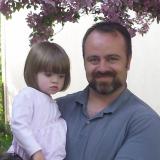
The Heart of True Religion
They call kale a ‘super food.’ Did you know that Catholicism is a super religion?
Kale is very high in beta carotene, vitamin K, vitamin C, and calcium, it has anti-cancer properties, helps boosts DNA repair in cells, it lowers cholesterol and decreases the absorption of dietary fat. So says Wikipedia.
How is Catholicism a super religion? Do you know? Just because it somehow gets you a place in heaven?
Does Catholicism taste as bad as kale?
Apologetics and Mystical Theology: Two Sides of Faith
I always say that there are two kinds of theology: apologetics and mystical theology. The first is what you teach to others; the second is what you teach yourself (or is taught to you by God by means of prayer and study). And yet I have given courses with all sorts of other titles: for example, Thomistic Theology, Augustinian Theology, Patristics, Christology, and even a course specifically called ‘Apologetics.’ But as I said, everything is apologetics. Apologetics means making the Faith seem desirable, true, good, etc. Yes, there are techniques and bits of knowledge specially tied into apologetics, but the fact is, the Faith is always taught apologetically if it is taught well.
I think that the most important thing is that we always emphasize the link between the individual teachings of the Faith, and not that it is true—of course it is true!—but that it is good for us, not abstractly so, but concretely.
For example, what the Church teaches about marriage it teaches because God wants us to be happy and knows that we are happiest and healthiest in self-sacrificing, permanent, monogamous relationships. Conversely, homosexual and adulterous relationships are bad because they cannot do that. As teachers of the faith we must be especially attuned to proving that this is so.
Get used to statistics and studies. Literature and story-telling is important too. Have you ever read a book and thought ‘that’s anti-Christian!’ and yet you couldn’t precisely prove your point? Maybe it is a story about an all-too-human priest. Of course it is. Have you ever seen the clergy presented in a positive way on TV or in the movies?
Apologetics isn’t untruthful though. We speak about the way things really are and the way things should be. But we don’t confuse the two things. It’s always bad when we try to deny the reality of evil in the Church. The Church should hold a place in your heart like your family does, and you don’t exaggerate the evil in them, nor necessarily broadcast it all the time. Enemies do that.
So, ideally, the teacher should know:
- The history of the Church, all about both its heroes and its villains.
- What the Church actually teaches, especially on controversial matters like homosexuality, contraception, abortion, euthanasia, wealth, capital punishment, war, etc.
- The positive impact of Christianity in history and on the world today.
- The arguments that are customarily used to criticize Catholicism and good replies to them.
Sure, amassing this kind of knowledge constitutes a lifetime’s work. But you can make progress on it in little bits all the time.
Faith That Nourishes the Soul
Again, the key question is why is this aspect of the Church’s Faith good, or, why does the Church say that this is a healthy choice for people? Always keep this question in mind. Pray about it, read books that attempt to answer it.
Don’t forget, faith requires that you first believe that there is an answer to this question. If the Faith cannot lead you to happiness and goodness, then it is not real, then it is a waste of time. It is real, therefore it can lead you to happiness and goodness. This doesn’t mean it’s always easy to draw the lines between the Faith and goodness or happiness. Exercise your mind on difficult questions:
- The Church teaches that contraception is wrong, but contraception can prevent harmful diseases like AIDS. How is this good?
- The Church teaches that divorce is wrong, but it’s wrong to be with someone who abuses you. How is the Church right?
- God wants people to be happy, but the Church makes homosexuals feel bad about themselves.
- Religion leads to war and disunity in the world.
There are a million questions like this. Some are really hard to figure out, but with enough time and effort, you can. And then, there are the ones that you will never figure out:
- Why is God a Trinity?
- Why was I born?
- Why did my father die when he did?
- Why does God allow bad things to happen?
Still, even though you will not be able to answer these questions with absolute clarity, you will be able to provide some guidance to others on them.
The Hard Questions and the Mystical Path
Why is God a Trinity? Real answer: because He is, and He cannot not be. Helpful answer: God is love and wants all people to love because He is Himself a holy unity of Persons who love each other. I haven’t really answered the question here, but I have shown why it is a good thing that God is a Trinity.
Why does God allow bad things to happen? – that’s one of the trickiest questions of all. It’s not an impossible question, like questions about God are impossible, but it is a question we will not really know a definite answer to until we get to heaven. There are a lot of good resources to help you answer this one. Just to name a few: start with the best of them all, the Book of Job, also read Peter Kreeft’s Making Sense out of Suffering, C.S. Lewis’ The Problem of Pain and A Grief Observed, just to name a few good ones.
As you move toward some kind of answer to this question, you will spend a lot of time reflecting on the meaning of life. You will likely find yourself stripping away the false ideas you have had and really getting to know God and man much better. You will get closer to God. But that is mystical theology, I have said. And that’s a story for another time.
In conclusion, an apple a day, I mean, kale, keeps the doctor away; rosaries, monogamy, and forgiveness not only keep Satan away, but they bring happiness. If kale is so good for us, why doesn’t it taste as good as candy? Because my mind is not one with my body. I got a lot of work to do if I am going to be physically healthy, and much more work if I am going to be spiritually healthy. Teaching the Faith is a lot like trying to get kids to eat kale.

Colin wrote this Article for the Knights of the Holy Eucharist. He has been married to Anne-Marie since 1999, and they are proud to raise their six children, in a small town in Ontario, Canada. Colin has a PhD in Theology and works tirelessly to promote the Gospel. “Just share the Word,” is what he believes the Lord says to him – and so he does. He recently founded The Catholic Review of Books, a printed journal and website dedicated to “all things books” from the perspectives of faithful Catholics. He is fascinated by the concept of chivalry as it applies to being a man and a father in today’s crazy world.
